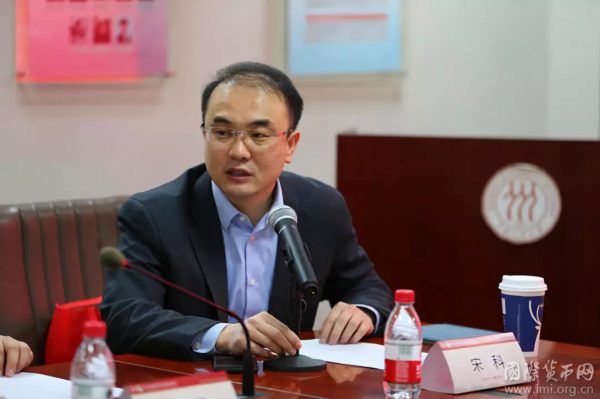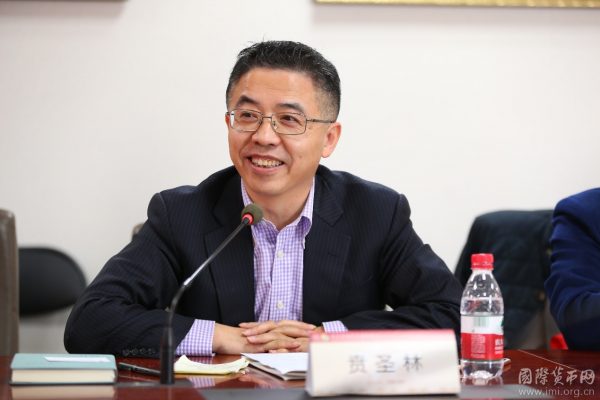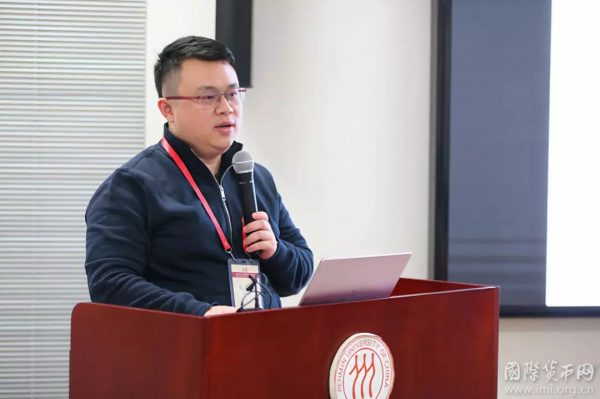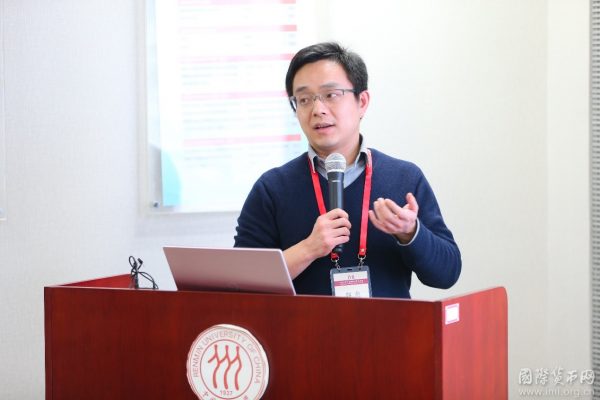Young Economists Roundtable on Money and Finance (No. 1) Held during the 2019 IMI New Year Symposium
2019-01-31 IMI
Song Ke
Ben Shenglin, Co-Director of IMI, Founding Dean of Zhejiang University Academy of Internet Finance and International Business School, attended this meeting and delivered a speech. He believes that in the coming decade the Roundtable will bring discussions to the table for the rise of great power, and Renmin University of China, as a leading think tank, should do researches about history and future. Young scholars should have a global view, and after the incident of Meng Wanzhou, we should focuse on technology, future and new finance.
Ben Shenglin
In her keynote speech, Zhong Hong expressed her opinions on transformations of banks. She believes that currently transformations of banks mainly include three aspects: light assets, light business and light cost. The transformation of Bank of China keeps in step with that of other banks in the world. The transformation towards a light bank is reflected in the decrease of risks, the intensity of human resources, and profits. She also pointed out that the fintech has brought some challenges to the traditional financial business, and force banks to transform themselves. At the same time, she indicated that during the transformation, banks need policymakers to create a stable macroeconomic environment, including monetary, regulatory and financial market environments. More importantly, banks need to prepared good strategic planning and arrangement. They need to avoid derailment in the future in terms of how to realize orientation and mode of transformation with differentiation and features.
Zhong Hong
Wang Zuogang shared some thoughts from the perspective of Fintech. He pointed out that there is a great deal of micro and inclusive financial business involved in Fintech, but in fact, there is no clear line between large and micro financial businesses. Mobile payment, which does not allow large-value transactions, needs to be improved. In addition, the development of blockchain allows more people from more regions and countries to enjoy the convenience of Fintech. Some of the security issues that come with it are related to law, regulation and market, among which the most fundamental one is law. He also pointed out that the impact of technological changes on institutional demand should be further studied in a systematic way. Issues including the governance supervision of pure IT companies and their future business require in-depth discussion.
Wang Zuogang
Liu Chenjie briefly expressed his views on the supply-side reform. He believes that there will highly likely be a financial crisis in the next five years, so some protective measures need to be taken. He also said that in 2030, China's economic growth rate is expected to stay at 3%-4%. The overall industrial structure and dynamic may undergo some big changes. The huge dividends initially released by industries such as the smartphone industry may gradually fade away. Finally, he recommended lowering the tax rate and taking stock of the market environment. Tax can be increased to create more benefit when people live a rich and comfortable life, or as he put it, when “the fish are big and fat”.
Liu Chenjie
Li Lin briefly reviewed global economic development and asset performance in 2018. The global economic growth was generally stable in 2018. The economic development of major countries entered the late economic stage. Most of the assets did not enjoy positive returns, and the volatility of asset prices clearly increased. She believes that the economic growth of major countries will slow down in 2019. She also thinks that the United States is at the end of the economic cycle and that its economic growth may significantly slow down in the second half of the year. The US dollar index will be under great pressure in the second half of the year, and emerging economies with a weak economic basis will continue to face great pressure and many challenges and risks. Finally, she summed up the 2019 global macroeconomic outlook and the theme of investment. She pointed out that the stock market proportion of developed countries should be slightly lowered, and that of the emerging economies should be increased.

Li Lin
Guo Biao first pointed out that the significance of derivatives in capital circulation is to make up for discontinuity, match and calibration in order to maintain capital value and accelerate error correction. He then analyzed the cross markets in terms of options and stocks, CDS and options, CDS plus options and stocks. He finally concluded that derivatives are necessary. It is not a virtual existence of the real economy, but an important competitive catalyst and pricing scale in capital circulation, as well as a key factor in promoting the development of the real economy.
Guo Biao
The meeting was also attended by more than 20 other guests and members of the IMI research team.